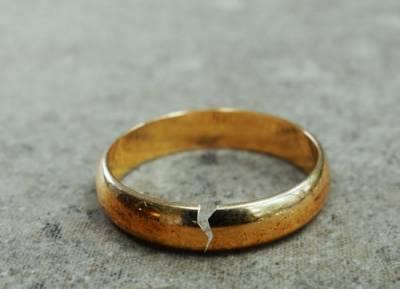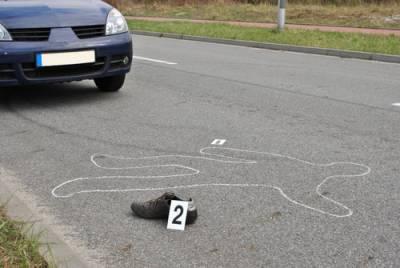 Free consultation
Free consultation630-953-3000
Your Voice Matters
 If you are going through a divorce, you likely have a lot of questions. It is critical to receive the answers you need so you fully understand the process and can better protect your rights. Below are some of the most frequently asked questions about family law in Illinois, and the answers to them.
If you are going through a divorce, you likely have a lot of questions. It is critical to receive the answers you need so you fully understand the process and can better protect your rights. Below are some of the most frequently asked questions about family law in Illinois, and the answers to them.
Unlike some states, Illinois does not place a mandatory separation period on couples before they can file for divorce. If one party does not agree to the divorce, you may have to live separate and apart from your spouse. This does not necessarily mean that you have to live under separate roofs. You simply must show that you have lived independently from your spouse.
After living separately and apart for a period of six months, the court will presume there are irreconcilable differences and will allow the divorce to proceed. If you and your spouse agree to the divorce, you can proceed with the process without living separately and apart.
 Divorce is not only an emotional process, but it is also a legal one governed by many laws and procedural rules. People going through issues such as child custody, property division, and more are often not aware of how the legal process works and so, they make mistakes that end up hurting their case. To ensure you receive the fair settlement you deserve, read the most common mistakes made below, and how to avoid them.
Divorce is not only an emotional process, but it is also a legal one governed by many laws and procedural rules. People going through issues such as child custody, property division, and more are often not aware of how the legal process works and so, they make mistakes that end up hurting their case. To ensure you receive the fair settlement you deserve, read the most common mistakes made below, and how to avoid them.
Many people think that to get a divorce, they must enter litigation and go to trial. While this is sometimes the only option, it is not the first one you should consider. Litigated divorces take much longer, are more costly, and a judge may not return a decision in your favor. Options such as collaborative law and mediation allow you and your spouse to control the process, which can reduce the stress of the process and still help you recover a fair settlement.
 Leaving the scene of an accident is a serious crime, and Illinois prosecutors might not take kindly to your argument that you were too confused or shaken to stop. Even if the accident only caused property damage, you might face a criminal charge under Illinois statutes. Please contact a criminal defense lawyer in DuPage County for help with your defense.
Leaving the scene of an accident is a serious crime, and Illinois prosecutors might not take kindly to your argument that you were too confused or shaken to stop. Even if the accident only caused property damage, you might face a criminal charge under Illinois statutes. Please contact a criminal defense lawyer in DuPage County for help with your defense.
Several laws lay out a driver’s obligations after an accident. Collectively, they require the following:
 Yes. Driving under the influence includes more than being intoxicated by alcohol. The law also prohibits driving under the influence of drugs, including marijuana. Although Illinois has decriminalized recreational marijuana use, some people wrongly think they can toke up behind the wheel. Unfortunately, as our DuPage County DUI attorney explains below, you can face some serious penalties.
Yes. Driving under the influence includes more than being intoxicated by alcohol. The law also prohibits driving under the influence of drugs, including marijuana. Although Illinois has decriminalized recreational marijuana use, some people wrongly think they can toke up behind the wheel. Unfortunately, as our DuPage County DUI attorney explains below, you can face some serious penalties.
A cannabis DUI is the unlawful operation of a motor vehicle while under the influence of cannabis. Under 625 ILCS 5/11-501.2(a)(6), you can be charged if you have the following tetrahydrocannabinol (THC) levels within two hours of driving:
You can also be charged if you have less of these amounts, so long as you are rendered incapable of driving safely.
 Every criminal case turns on evidence. Without it, the state cannot secure a conviction for even the lowest-level crimes, and defendants can walk free. Sometimes evidence is contradictory, and it is up to the judge or jury to decide who is telling the truth or what evidence is most believable. At J. Aldrich Law, P.C., our team will aggressively review all evidence found by the state and go even further, looking for exculpatory evidence to clear your name of a retail theft charge.
Every criminal case turns on evidence. Without it, the state cannot secure a conviction for even the lowest-level crimes, and defendants can walk free. Sometimes evidence is contradictory, and it is up to the judge or jury to decide who is telling the truth or what evidence is most believable. At J. Aldrich Law, P.C., our team will aggressively review all evidence found by the state and go even further, looking for exculpatory evidence to clear your name of a retail theft charge.
Many people convict themselves out of their own mouths soon after being stopped on suspicion of theft. Some people immediately admit they took goods, while others will come up with a story that is simply not believable. Ideally, anyone stopped on suspicion of retail theft will immediately stay quiet. There is no reason to talk to store personnel or the police, and you have a Fifth Amendment right against self-incrimination. Instead, ask for a lawyer.
 From collecting financial records to starting to think about child custody arrangements, taking a few preparatory steps can make all the difference when it comes to getting ready for your divorce. To learn more about what is required to obtain a divorce in Illinois, please contact an experienced Naperville divorce lawyer who can help ensure that your divorce goes as smoothly as possible.
From collecting financial records to starting to think about child custody arrangements, taking a few preparatory steps can make all the difference when it comes to getting ready for your divorce. To learn more about what is required to obtain a divorce in Illinois, please contact an experienced Naperville divorce lawyer who can help ensure that your divorce goes as smoothly as possible.
Some of the most difficult aspects of ending a marriage involve a couple’s finances. To help divorcing couples should be sure to start collecting important financial documentation, including:
 When legally ending a marriage in Illinois, couples are required to divide their marital assets in an equitable manner. This makes the determination of whether an asset is marital or separate extremely important, so if you and your spouse are contemplating divorce and you have questions about whether you will need to share a certain asset, it is important to speak with an experienced Naperville, IL property division lawyer who can help you.
When legally ending a marriage in Illinois, couples are required to divide their marital assets in an equitable manner. This makes the determination of whether an asset is marital or separate extremely important, so if you and your spouse are contemplating divorce and you have questions about whether you will need to share a certain asset, it is important to speak with an experienced Naperville, IL property division lawyer who can help you.
In Illinois, the date of a couple’s marriage is usually used to differentiate between the separate and marital assets of two parties. Generally, anything that one spouse owned before marriage will remain his or her property even in the event of divorce. On the other hand, anything purchased or acquired after a marriage takes place, whether by one spouse or by both spouses together, is considered marital property and must be divided in an equitable manner.
 For many couples, the family home is their most valuable asset, which can make deciding the fate of that residence especially complicated in the event of divorce. Fortunately, couples do have a number of options when it comes to deciding who gets the family home in the divorce, options that will depend largely on a specific set of questions, so if you and your spouse have decided to end your marriage, you should speak with an experienced property division lawyer in Naperville, IL who can evaluate your circumstances and advise you accordingly.
For many couples, the family home is their most valuable asset, which can make deciding the fate of that residence especially complicated in the event of divorce. Fortunately, couples do have a number of options when it comes to deciding who gets the family home in the divorce, options that will depend largely on a specific set of questions, so if you and your spouse have decided to end your marriage, you should speak with an experienced property division lawyer in Naperville, IL who can evaluate your circumstances and advise you accordingly.
One of the most important questions that divorcing couples must address when going through the property division process is whether their home qualifies as marital property. Under Illinois law, a couple’s property is only subject to equitable distribution if it was acquired after the marriage took place. Otherwise, the asset will be considered separate property and remain in the sole possession of the original owner.
 The penalties faced by a person who has been accused of retail theft in Illinois are some of the most severe in the U.S. For instance, defendants convicted of shoplifting items worth $300 or more face up to five years in prison and fines of $25,000. To ensure that you are not unfairly convicted of retail theft or a similar crime, please reach out to our experienced Naperville, IL retail theft lawyers today.
The penalties faced by a person who has been accused of retail theft in Illinois are some of the most severe in the U.S. For instance, defendants convicted of shoplifting items worth $300 or more face up to five years in prison and fines of $25,000. To ensure that you are not unfairly convicted of retail theft or a similar crime, please reach out to our experienced Naperville, IL retail theft lawyers today.
Retail theft is defined under Illinois law as the taking of merchandise without paying for its full value. Because it is so broadly defined, a number of different activities fall under this category. For instance, a person can be charged with retail theft if he or she has been accused of leasing property and failing to return it to the owner on time. Other forms of retail theft include:
 Those who have been charged with domestic battery face serious penalties, including jail time, making it especially important for those who have been accused of this offense, to speak with an experienced Naperville, IL domestic battery attorney as soon as possible about their defense strategy.
Those who have been charged with domestic battery face serious penalties, including jail time, making it especially important for those who have been accused of this offense, to speak with an experienced Naperville, IL domestic battery attorney as soon as possible about their defense strategy.
Under Illinois law, a person commits domestic battery if he or she:
Most domestic batteries are charged as Class A misdemeanors, which are punishable by up to a year in jail and a $2,500 fine. However, unlike many misdemeanor offenses, conviction for domestic battery can never be removed from a person’s criminal record, unless he or she is able to obtain a pardon from the Governor. This means that proof of the arrest, charge, and conviction can be viewed by the public, including employers, credit agencies, landlords, educational institutions, and government agencies.

 630-953-3000
630-953-3000 1700 Park St., Suite 203F, Naperville, IL 60563
1700 Park St., Suite 203F, Naperville, IL 60563 Evenings and Weekends by Appointment
Evenings and Weekends by Appointment